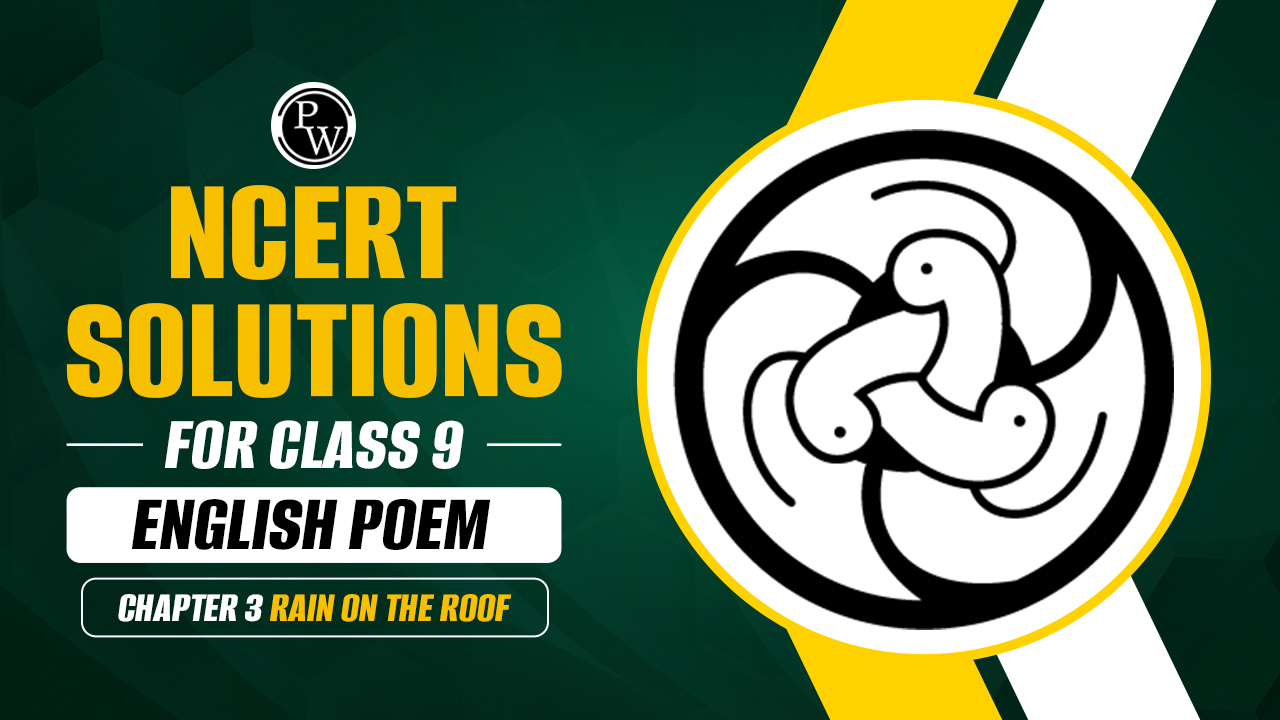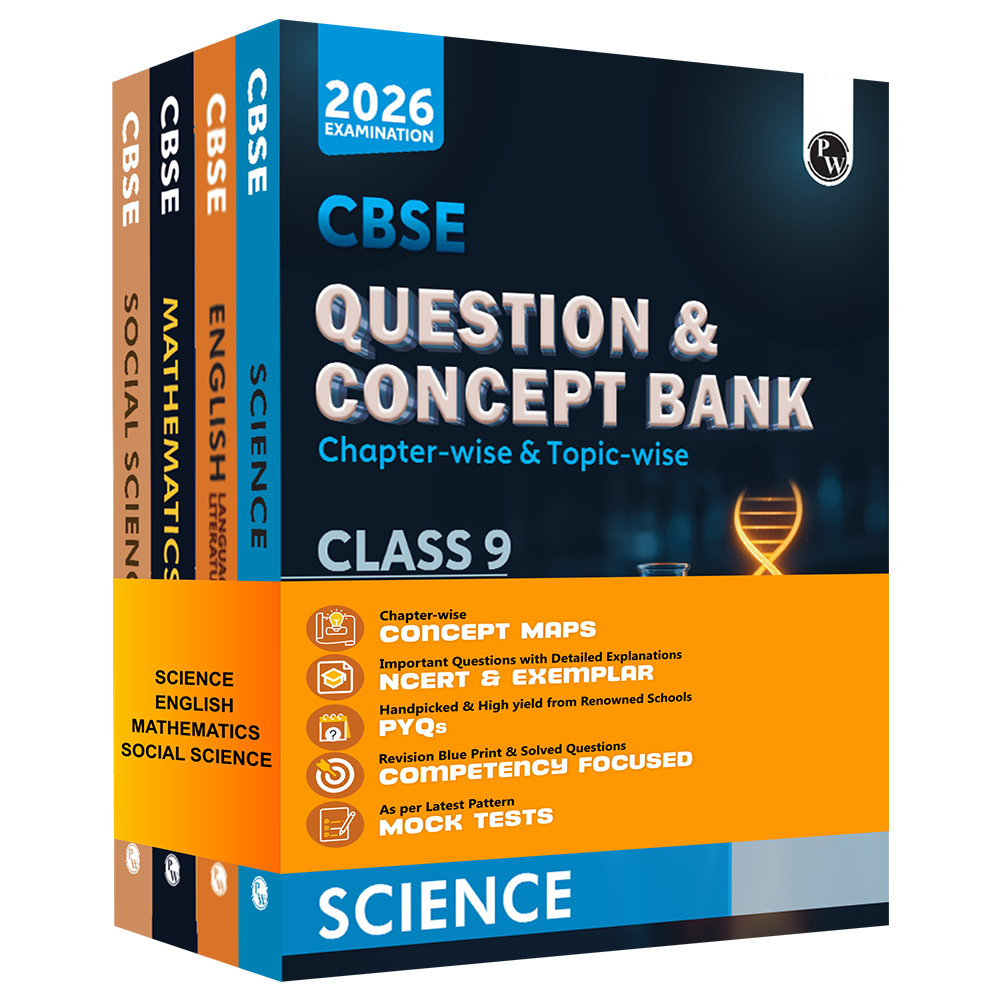NCERT Solutions Class 9 English Poem Chapter 3 Rain On The Roof

Class 9 English Poem Chapter 3 Rain On The Roof:- Chapter 3 of Class 9 English, titled "Rain on the Roof," is a beautiful poem by Coates Kinney. It explores the calming and reflective qualities of rain, focusing on how the sound of raindrops on a roof creates a peaceful and nostalgic atmosphere. The poet uses vivid imagery to convey how rain can bring back memories of loved ones and stir emotions. Through gentle language, Kinney shows how the rain’s rhythm can be soothing and comforting.
For students looking clarity, the NCERT Class 9 Beehive Chapter 3 question answers provide a detailed explanation of the poem. These Rain on the Roof question answer 8 are helpful in understanding the poem’s themes, symbolism, and the deeper emotions it evokes. The NCERT Solutions Class 9 English Poem Chapter 3 Rain On The Roof offer clear answers to help students better understand the poem and prepare for exams.
If you're looking for the NCERT Solutions for Class 9 English Chapter 3, "Rain on the Roof," these provides detailed answers. You can find the full Class 9 English Poem Chapter 3 solutions below. All answers are explained according to CBSE guidelines by the faculty team.Before going through the Rain on the Roof question answers, it’s a good idea to first read the poem and understand its meaning. This will help you better understanding the feelings and ideas the poet is sharing.
The NCERT Solutions for Class 9 English Poem Chapter 3 by Physics Wallah give simple, step-by-step explanations for each question, making it easier to learn and understand the poem.
Check out: Class 9th Books
NCERT Solutions For Class 9 English Poem Chapter 3 Rain On The Roof
I. Given below are some emotions that Kezia felt. Match the emotions in Column A with the items in Column B.
|
A |
B |
|
1. fear or terror 2. glad sense of relief 3. a “funny” feeling, perhaps of understanding |
(i) father comes into her room to give her a goodbye kiss (ii) noise of the carriage grows fainter (iii) father comes home (iv) speaking to father (v) going to bed when alone at home (vi) father comforts her and falls asleep (vii) father stretched out on the sofa, snoring |
Answer:
|
A |
B |
|
1. fear or terror 2. glad sense of relief 3. a “funny” feeling, perhaps of understanding |
(iv) speaking to father (iii) father comes home (v) going to bed when alone at home (vii) father stretched out on the sofa, snoring (i) father comes into her room to give her a goodbye kiss (ii) noise of the carriage grows fainter (vi) father comforts her and falls asleep |
II. Answer the following questions in one or two sentences.
Question 1. Why was Kezia afraid of her father?
Answer: In the story "The Little Girl" by Katherine Mansfield, Kezia is afraid of her father because of his strict and intimidating nature. He is portrayed as a stern and distant figure who seldom interacts with his children in a gentle or affectionate manner. His authoritative presence and the way he speaks to them, often with harshness, make Kezia feel anxious and fearful around him.
Read More: NCERT Solutions Class 9 English Poem Chapter 1
Question 2. Who were the people in Kezia’s family?
Answer: Kezia’s family comprised her father, mother grandmother and herself.
Read More: NCERT Solutions Class 9 English Poem Chapter 2
Question 3. What was Kezia’s father’s routine?
(i) before going to his office?
(ii) after coming back from his office?
(iii) on Sundays?
Answer: i) Before leaving for the office, Kezia’s father would give her a quick goodbye kiss.
ii) Upon returning home, he would have tea brought to him in the drawing room, ask his mother for his papers and slippers, and tell Kezia to remove his boots.
iii) On Sundays, he would lie on the sofa, cover his face with a handkerchief, put his feet on a cushion, and nap while snoring.
Question 4. In what ways did Kezia’s grandmother encourage her to get to know her father better?
Answer: Kezia’s grandmother encouraged her to get to know her father better by suggesting she spend time with him in the drawing room. She also advised Kezia to stitch a pin-cushion from a lovely yellow silk and give it to him as a birthday gift.
Check out: Class 9th Combo Set of 5 Books
II. Discuss these questions in class with your teacher and then write down your answers in two or three paragraphs each.
Question 1. Kezia’s efforts to please her father resulted in displeasing him very much. How did this happen?
Answer: Kezia had stitched three sides of the pin-cushion but was unsure what to use for stuffing. With her grandmother absent, she went to her parents’ room to ask her mother for some scraps, but found no one there. She noticed some sheets of paper on the bedside table, tore them into pieces, and used them to fill the cushion.
That night, when her father discovered the missing papers, which were important notes for a Port Authority speech, he was furious. He scolded and punished Kezia with a ruler for handling things that weren’t hers.
Question 2. Kezia decides that there are “different kinds of fathers”. What kind of father was Mr Macdonald, and how was he different from Kezia’s father?
Answer: Kezia realised that fathers can be very different. Mr. Macdonald, for instance, was a loving and gentle father who played and laughed with his children and was friendly and forgiving. In contrast, Kezia’s own father was strict and distant, lacking the warmth and friendliness of Mr. Macdonald.
Question 3. How does Kezia begin to see her father as a human being who needs her sympathy?
Answer: One night, while her mother and grandmother were at the hospital, Kezia was left at home with Alice, the cook. After a nightmare, she called for her grandmother but found her father beside her bed instead. He gently picked her up, settled her on his bed, and lay down next to her. As she snuggled under his arm and held onto his shirt, she noticed he fell asleep before her. Realising how hard he worked each day, Kezia understood why he was different from Mr. Macdonald. She told her father he had a big heart.
Check out: Class 9th English Book
Thinking about Language
I. Look at the following sentence.
There was a glad sense of relief when she heard the noise of the carriage growing fainter…
Here, glad means happy about something.
Glad, happy, pleased, delighted, thrilled and overjoyed are synonyms (words or expressions that have the same or nearly the same meaning.) However, they express happiness in certain ways.
Read the sentences below.
• She was glad when the meeting was over.
• The chief guest was pleased to announce the name of the winner.
Question 1. Use an appropriate word from the synonyms given above in the following sentences. Clues are given in brackets.
(i) She was __________ by the news of her brother’s wedding. (very pleased)
(ii) I was __________ to be invited to the party. (extremely pleased and excited about)
(iii) She was __________ at the birth of her granddaughter. (extremely happy)
(iv) The coach was __________ with his performance. (satisfied about)
(v) She was very __________ with her results. (happy about something that has happened)
Answer:
(i) She was thrilled by the news of her brother’s wedding. (very pleased)
(ii) I was delighted to be invited to the party. (extremely pleased and excited about)
(iii) She was overjoyed at the birth of her granddaughter. (extremely happy)
(iv) The coach was pleased with his performance. (satisfied about)
(v) She was very happy with her results. (happy about something that has happened)
Check Out - CBSE class 9 Question Bank
Question 2. Study the use of the word big in the following sentence.
He was so big — his hands and his neck, especially his mouth…
Here, big means large in size.
Now, consult a dictionary and find out the meaning of big in the following sentences. The first one has been done for you.
(i) You are a big girl now. older
(ii) Today you are going to take the biggest decision of your career. __________
(iii) Their project is full of big ideas. __________
(iv) Cricket is a big game in our country. __________
(v) I am a big fan of Lata Mangeshkar. __________
(vi) You have to cook a bit more as my friend is a big eater. __________
(vii) What a big heart you’ve got, Father dear. __________
Answer:
(i) You are a big girl now. older
(ii) Today you are going to take the biggest decision of your career. most crucial
(iii) Their project is full of big ideas. amazing
(iv) Cricket is a big game in our country. popular
(v) I am a big fan of Lata Mangeskar. great
(vi) You have to cook a bit more as my friend is a big eater. glutton
(vii) What a big heart you’ve got, Father dear. magnanimous
II. Verbs of Reporting
Study the following sentences.
• “What!” screamed Mother.
• “N-n-no”, she whispered.
• “Sit up,” he ordered.
The italicised words are verbs of reporting. We quote or report what someone has said or thought by using a reporting verb. Every reporting clause contains a reporting verb. For example:
• He promised to help in my project.
• “How are you doing?” Seema asked.
We use verbs of reporting to advise, order, report statements, thoughts, intentions, questions, requests, apologies, manner of speaking and so on.
Check out: Class 9th Revision Books
Question 1. Underline the verbs of reporting in the following sentences.
(i) He says he will enjoy the ride.
(ii) Father mentioned that he was going on a holiday.
(iii) No one told us that the shop was closed.
(iv) He answered that the price would go up.
(v) I wondered why he was screaming.
(vi) Ben told her to wake him up.
(vii) Ratan apologised for coming late to the party.
Answer:
(i) He says he will enjoy the ride.
(ii) Father mentioned that he was going on a holiday.
(iii) No one told us that the shop was closed.
(iv) He answered that the price would go up.
(v) I wondered why he was screaming.
(vi) Ben told her to wake him up.
(vii) Ratan apologised for coming late to the party.
Question 2: Some verbs of reporting are given in the box. Choose the appropriate verbs and fill in the blanks in the following sentences.
were complaining, shouted, replied, remarked, ordered, suggested
(i) “I am not afraid,” __________ the woman.
(ii) “Leave me alone,” __________ my mother .
(iii) The children __________ that the roads were crowded and noisy.
(iv) “Perhaps he isn’t a bad sort of a chap after all,” __________ the master.
(v) “Let’s go and look at the school ground,” __________ the sports teacher.
(vi) The traffic police __________ all the passers-by to keep off the road.
Answer:
(i) “I am not afraid,” declared the woman.
(ii) “Leave me alone,” shouted my mother .
(iii) The children complained that the roads were crowded and noisy.
(iv) “Perhaps he isn’t a bad sort of a chap after all,” remarked the master.
(v) “Let’s go and look at the school ground,” suggested the sports teacher.
(vi) The traffic police ordered all the passers-by to keep off the road.
Rain on the Roof Summary
"Rain on the Roof" captures the serene and nostalgic mood created by the sound of rain falling on a roof. The poem describes how the gentle patter of raindrops brings a sense of peace and comfort. It evokes memories and feelings of calmness, contrasting with the usual busyness of life. The poet reflects on the soothing effect of the rain, which acts like a lullaby, encouraging introspection and a deeper connection with nature. The poem celebrates the rain's ability to create a tranquil environment and stir sentimental thoughts.
Check out: Science Experiment Kit For Class 9th
Rain on the Roof Class 9 FAQs
Q1. What is the central theme of "Rain on the Roof"?
Ans. The central theme is the soothing and peaceful effect of rain, which evokes a sense of calm and nostalgia.
Q2. How does the poet describe the sound of the rain in the poem?
Ans. The poet describes the sound of the rain as gentle and rhythmic, likening it to a comforting lullaby.
Q3. What emotions does the poem evoke in the reader?
Ans. The poem evokes feelings of peace, tranquility, and nostalgia, as it reflects on the calming influence of rain.
Q4. What is the mood of the poem?
Ans. The mood of the poem is calm, reflective, and soothing, created by the imagery and sounds associated with rain.
Q5. How does the poet use imagery to enhance the theme?
Ans. The poet uses imagery related to the rain’s sound, its impact on the environment, and the feeling of being sheltered, enhancing the theme of comfort and peace.











